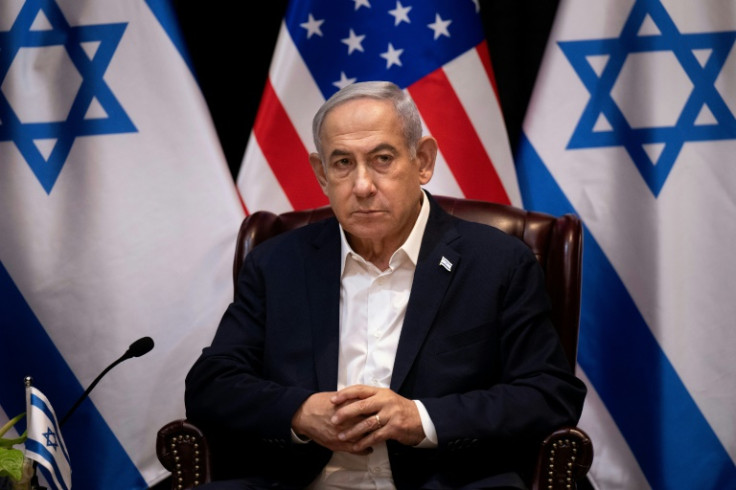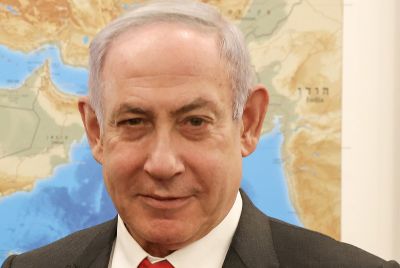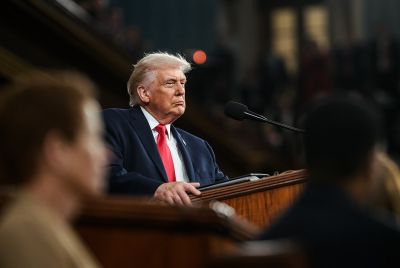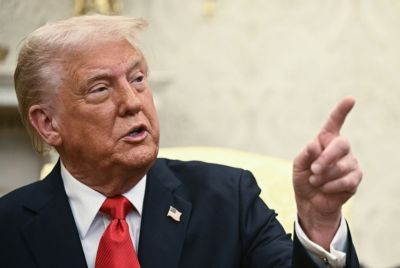What is Qatargate? Israel's Dems Call for Netanyahu's Accountability After Alleged Bribes from Arab State

Israel's Prime Minister Benjamin Netanyahu is facing renewed calls to account for alleged financial ties to Qatar, as the so-called 'Qatargate' scandal gains fresh momentum.
The scandal, which is a continuation of allegations that surfaced earlier this year, has gained new momentum after the Democratic chairman, Yair Golan, called for an investigation into Netanyahu's bank accounts to determine whether he was accepting Qatari funds.
Golan's demands follow earlier revelations that several of Netanyahu's close advisers allegedly received funds from Qatar. 'I ask myself a very, very simple thing. The security establishment has warned — and there is plenty of evidence for this — that Qatari money is being used to build Hamas's power,' Golan told The Times of Israel.
What Is Golan Calling For?
In a report by The Times of Israel, Golan has urged an investigation into Netanyahu's bank accounts to verify that he has not received funds from Qatar, following revelations of financial connections between the prime minister's close aides and the Gulf nation.
'I ask myself a very, very simple thing. The security establishment has warned — and there is plenty of evidence for this — that Qatari money is being used to build Hamas's power,' Golan said.
Referring to media coverage, he suggested that Shin Bet had already alerted the prime minister about the matter, yet the transfers to Qatar continued.
He went on to question whether, given Netanyahu's apparent leniency toward Qatar and the reported financial links of his close associates to the Gulf state, it might be appropriate to examine whether Qatari funds have influenced the prime minister's accounts.
During Netanyahu's tenure, from 2018 to 2023, Israel permitted the transfer of suitcases containing millions of dollars in Qatari cash into Gaza via Israeli border crossings, a move aimed at preserving the fragile ceasefire with Hamas, the enclave's governing authority.
What's Qatargate All About
In February 2025, Israeli Channel 12 broke the story that several advisers to Prime Minister Netanyahu—including Jonathan Urich, Eli Feldstein, Yisrael Einhorn, and Ofer Golan—allegedly received Qatari funds to run media influence operations in Israel, thereby enhancing Qatar's image and undermining Egypt's mediator role, which triggered fierce criticism.
Within weeks, in late February, Attorney-General Gali Baharav-Miara ordered an investigation jointly led by Shin Bet and the police's anti-corruption unit Lahav 433.
The revelations quickly snowballed into a political crisis. Opposition leaders accused Netanyahu of disregarding his aides' dealings while Israel funnelled Qatari cash into Gaza during his premiership.
By March 2025, the scandal—dubbed 'Qatargate'—dominated Israeli media and drew international attention, with analysts warning it could undermine Israel's diplomatic standing and fracture trust within the governing coalition.
Netanyahu: 'I Did Not Receive a Single Shekel'
Prime Minister Netanyahu vehemently rejected any wrongdoing in the 'Qatargate' affair, branding the investigation a 'political witch hunt' and alleging that his aides are being unjustly 'held hostage' by security authorities.
He also denied personally receiving any Qatari funds, stating, 'I did not receive a single shekel.'
Netanyahu portrayed the probe as an orchestrated attack on his leadership, defending his dismissal of Shin Bet chief Ronen Bar as rooted in national security concerns—not the investigation—a move currently under review by the Supreme Court.
Corruption Beyond Borders
Beyond Israeli circles, Qatar has faced serious bribery accusations globally. In 2022, a similar 'Qatargate' scandal engulfed the European Parliament—MEP Eva Kaili and others were arrested amid allegations they accepted cash, gifts, and holidays to sway EU decision-making in Doha's favour.
Simultaneously, during the 2022 World Cup bidding process, whistleblowers claimed Qatar paid $1.5 million each to African football officials in exchange for their support. In the US, ex-Senator Robert Menendez was indicted for allegedly accepting bribes on behalf of Qatari interests.
Widening Scope of 'Qatargate'
The widening scope of 'Qatargate'—from Netanyahu's aides in Israel to European lawmakers, football officials, and US politicians—underscores how Qatar's alleged use of financial leverage has become a global controversy. While Doha has consistently denied wrongdoing, the investigations highlight vulnerabilities in democratic systems where foreign money can distort political and policy outcomes.
For Israel, the scandal strikes at the heart of governance and security credibility, while abroad, it feeds broader concerns about corruption and foreign influence. Whether these inquiries deliver accountability remains uncertain, but they have already reshaped debates on transparency and foreign lobbying worldwide.
'Qatargate' is no longer just an Israeli political storm—it is part of a global debate about how Qatar wields its wealth. Netanyahu's future may depend on whether investigators can establish a clear distinction between his aides' dealings and his accounts.
© Copyright IBTimes 2025. All rights reserved.



















